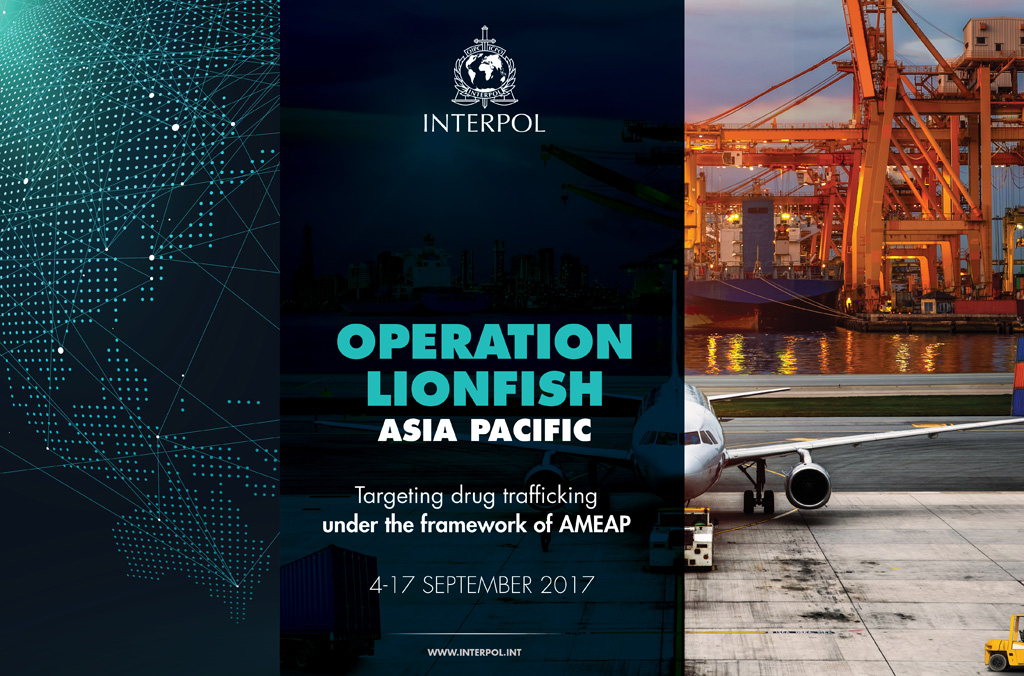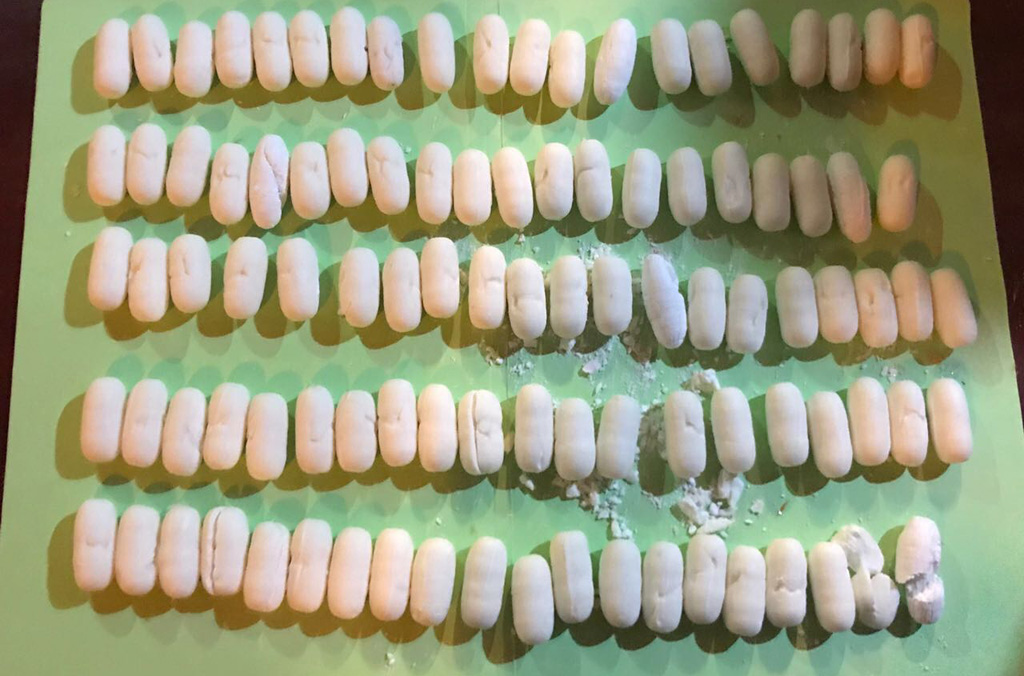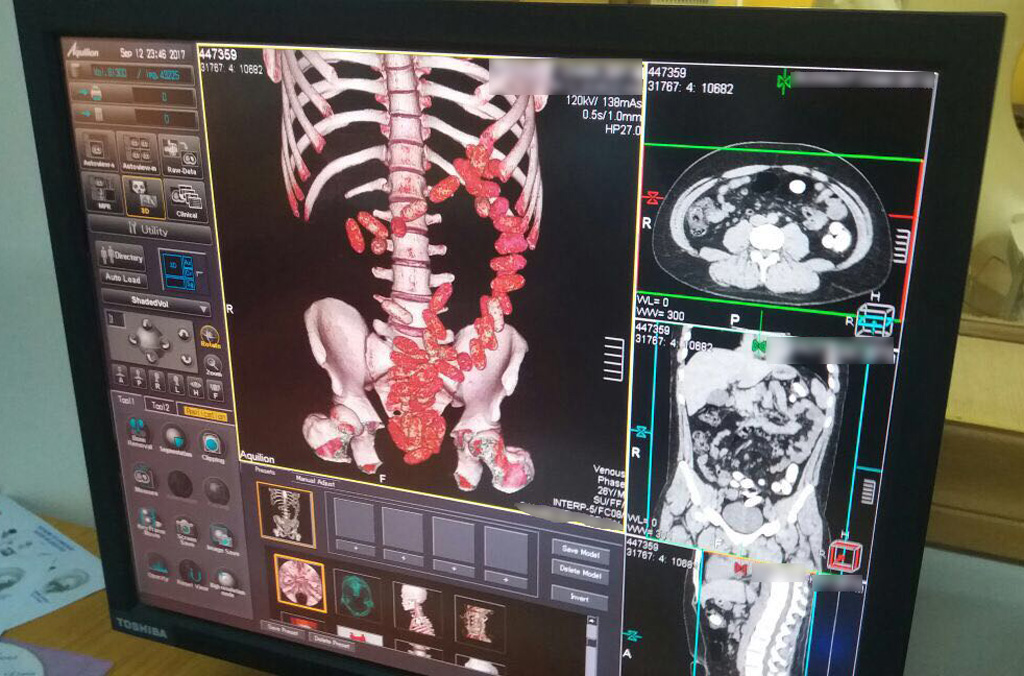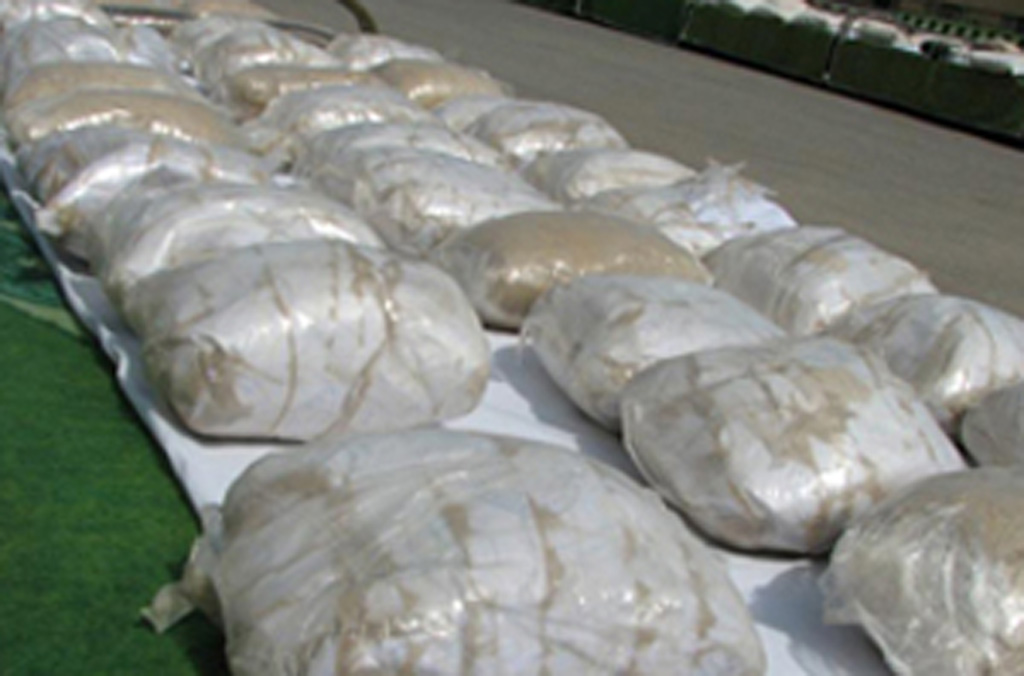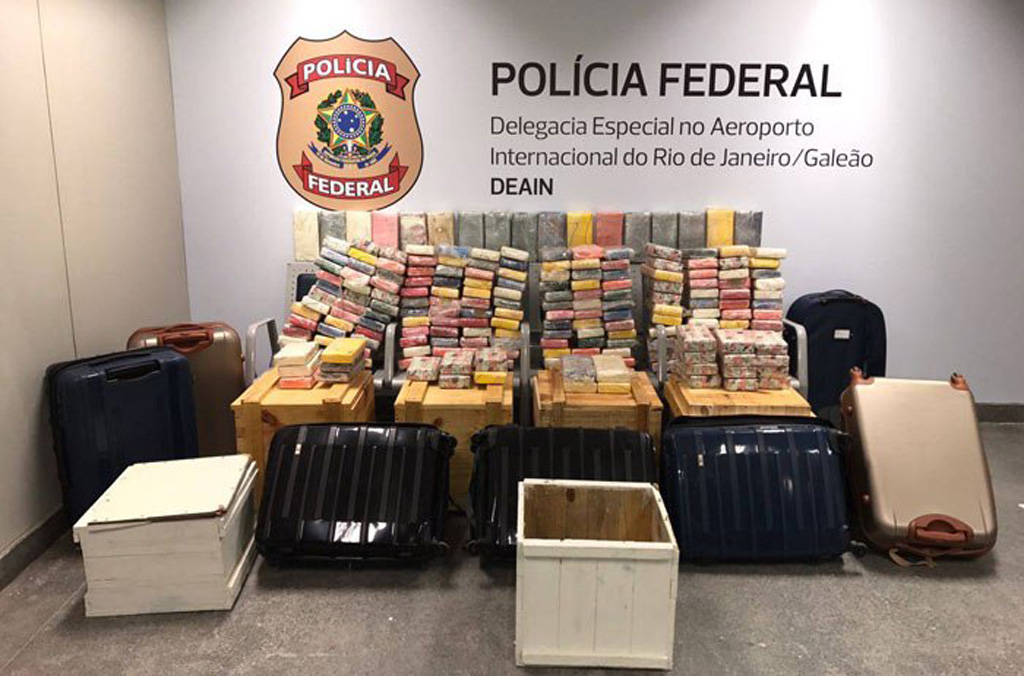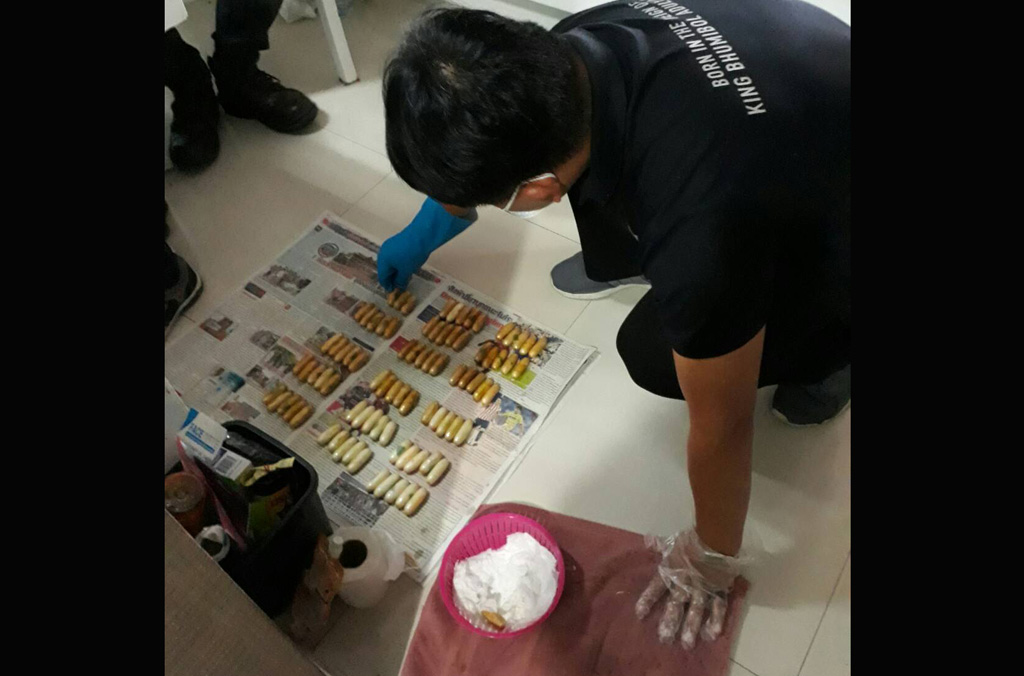SINGAPORE – Illegal drugs worth an estimated USD 360 million were seized across the Asia-Pacific and Middle East regions in an INTERPOL-coordinated operation.
Targeting illicit drug trafficking, Operation Lionfish – Asia-Pacific saw some 390 drug seizures and led to the arrest of more than 300 people.
Known cocaine trafficking routes from South America to the Asia-Pacific region via Africa, the Middle East and Southeast Asia were monitored during the operation, leading to 17 seizures worldwide. As a drug with the widest global distribution, cocaine increases up to 100 times in value as it is trafficked, making it a lucrative commodity for criminal networks.
Seizures of methamphetamine occurred in nearly all participating countries, with 630 kg recovered in tablet, crystalline and powdered form, highlighting the widespread trafficking of the drug. Intelligence sharing amongst the participating countries led to the identification of new methamphetamine trafficking routes and methods of concealment used by organized crime groups.
During the two-week operation (4 – 17 September), more than 5,000 police and customs officials conducted checks at land, air and seaports across 23 countries. In total, some 10 tonnes, 24 litres and 29,000 tablets of illicit drugs including cocaine, cannabis, heroin, opium and amphetamine-type stimulants (ATS) were recovered.
The large-scale trafficking of opium and heroin was a concern across Southwest Asia and the Middle East, with opium accounting for the largest volume of seizures at 6.4 tonnes. According to intelligence gathered, most of this would likely have been processed into morphine or heroin by the criminal networks involved.
“The INTERPOL-led operation has served as an important initiative for strengthening multilateral cross-border drug enforcement cooperation, providing effective channels of communication and enhancing mutual trust among law enforcement personnel. The successful results highlight the determination of all countries that joined to fight against drug-related crimes,” said Li Bo, Deputy Director of the Chinese Ministry of Public Security’s Narcotics Control Bureau Department of Investigation and Guidance.
An Operational Coordination Unit at the INTERPOL Global Complex for Innovation in Singapore brought together representatives from the participating countries, in liaison with police and INTERPOL National Central Bureaus in Africa and the Americas.
Other illicit goods were also seized during the operation, including 1.3 tonnes of ivory, 13 rhino horns, and 10,000 pieces of carbon paper used to produce counterfeit currency which was valued at USD 1 million.
“Operation Lionfish – Asia-Pacific provided a collaborative platform to combat illicit drug trafficking at an international level. The timely exchange of information between the participating countries ensured the interdiction of multiple attempts to import illicit drugs and prohibited goods.
“Without this cohesive and integrated initiative, sophisticated criminal groups would have continued to exploit the borders around the world,” said Sue Campbell , Senior Analyst with the Australia Department Of Immigration and Border Protection.
Operation Lionfish – Asia-Pacific was conducted under the umbrella of INTERPOL’s Project AMEAP (Africa-Middle East-Asia Pacific), supported by funding from the UAE via the INTERPOL Foundation for a Safer World, which serves as a coordination platform for a range of anti-drug trafficking initiatives.
Colonel Gholamreza Hamidi, Deputy Director of International and Regional Affairs of Anti-Narcotics Police of Iran, said: “The requirements for successful intelligence-based operations for dismantling illicit drug networks are the exchange of information close cooperation between countries. We believe that Operation Lionfish – Asia-Pacific was a model platform for exchanging information with all participating countries, and should be considered as a regional and international model for future INTERPOL operations.”
Countries participating in Operation Lionfish – Asia-Pacific were Australia, Brunei, Cambodia, China, Hong Kong (China), India, Indonesia, Iran, Japan, Laos, Malaysia, Myanmar, New Zealand, Qatar, Singapore, South Korea, Sri Lanka, Thailand, United Arab Emirates and Vietnam, with additional support from Brazil, Nigeria, South Africa and Togo.




